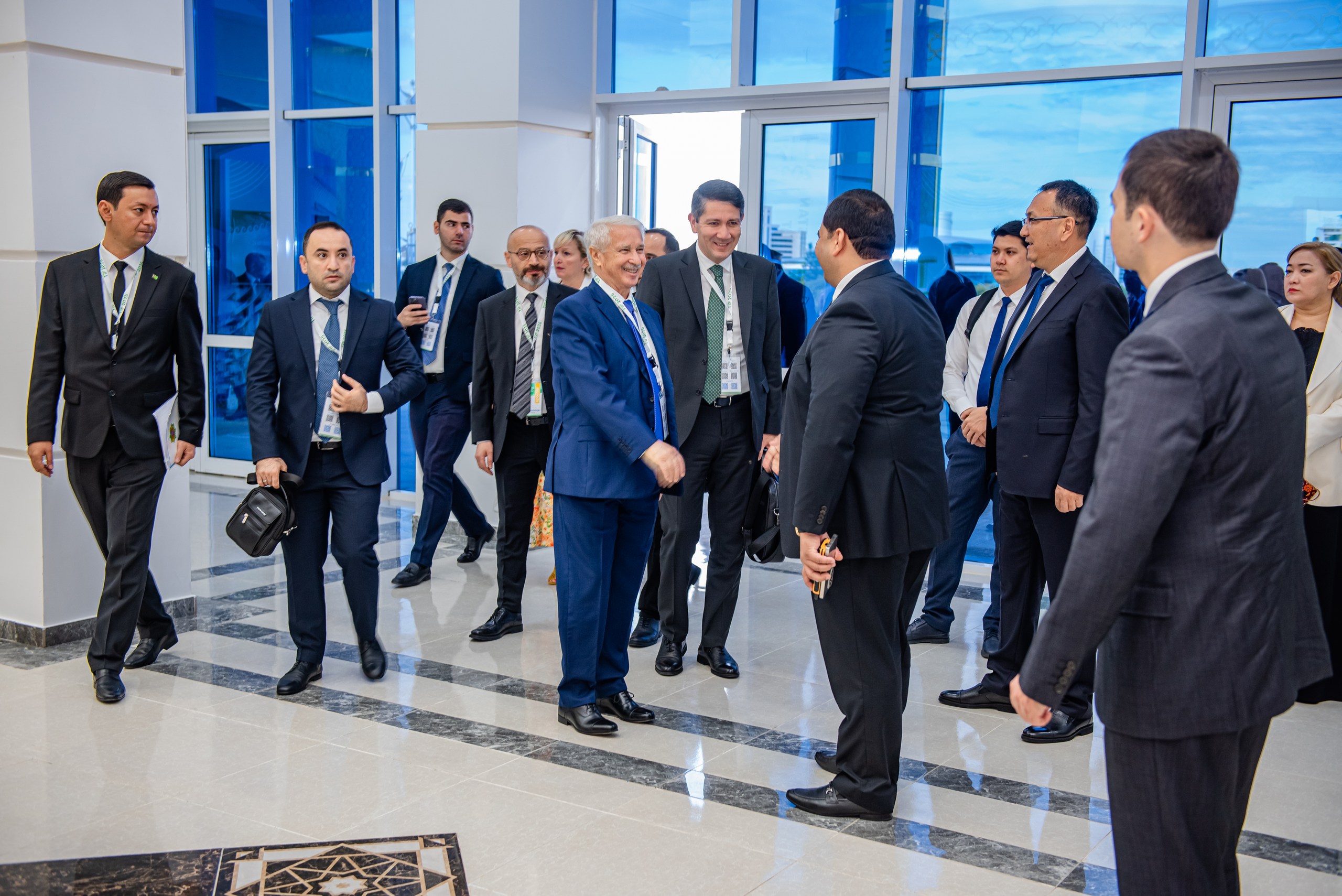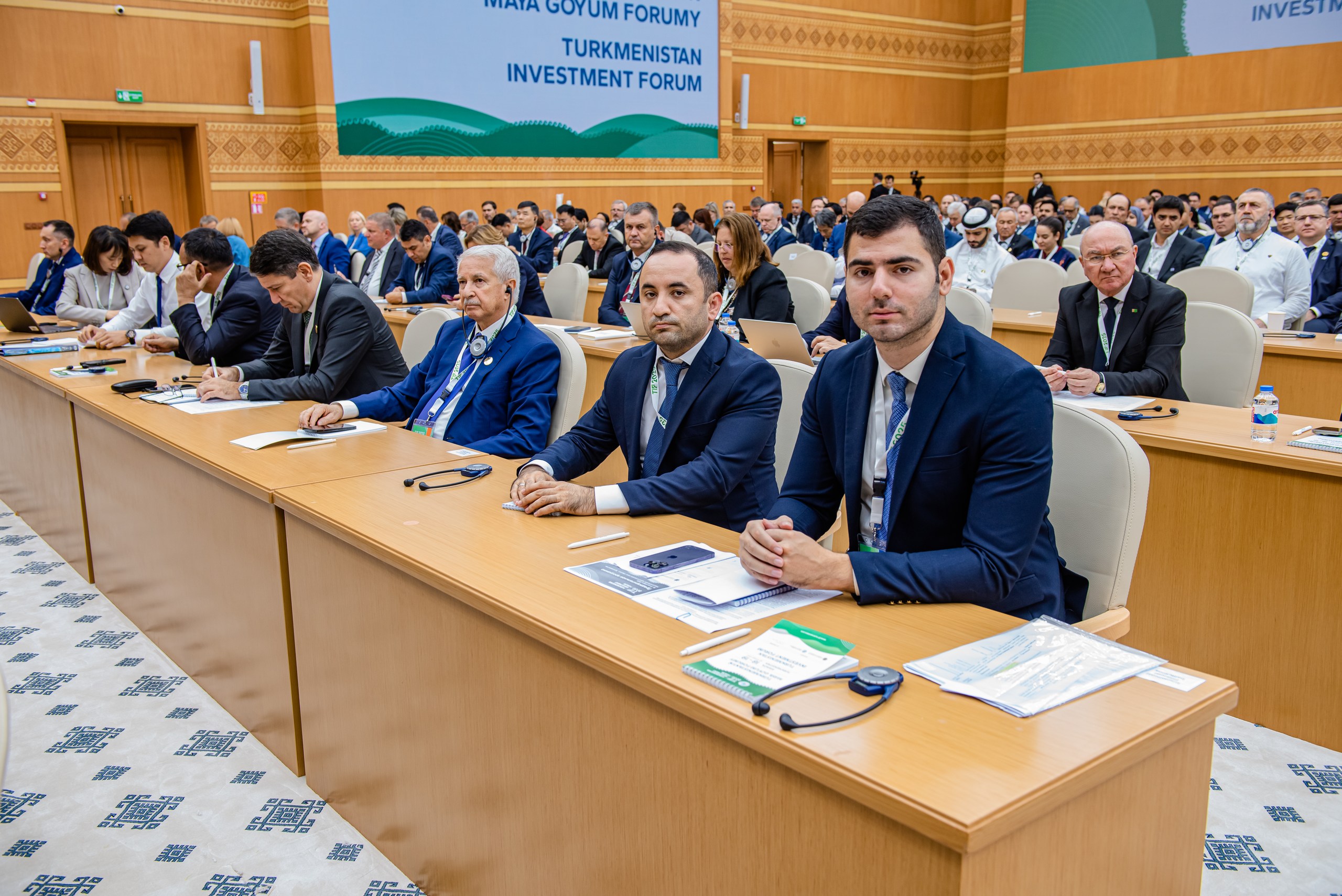Turkmenistan as a Center for Stability and Integration – Focus of TIF

There is a philosophical and political observation, often found in liberal thought, that "democracies don't fight each other." However, today the very concept of "democracy" has become vague, perhaps because some actors in the international community unilaterally proclaim themselves as such.
Nevertheless, a necessary clarification is needed: countries that demonstrate sustainable economic development, political stability, and developed infrastructural connectivity, and base their relations on mutual cultural respect, are not prone to conflict with each other and are capable of maintaining healthy competition in the long term.
The Turkmenistan Investment Forum – TIF 2025, which recently took place in the Avaza National Tourist Zone and brought together leading international investors, financial institutions, and industrial corporations, seeks to confirm this concept in practice.
By transforming into a strategic platform for discussing large-scale energy and infrastructure projects, digital and green technologies, and strengthening regional integration, the forum demonstrates that economic and technological interconnectedness between countries can serve as a reliable tool for stability.
The first session of the forum, titled "Stable and Reliable Energy Sustainability – Developing Priority Sectors of Turkmenistan's Fuel and Energy Complex," was devoted to issues of energy sustainability and development, which are so crucial in today's uncertain and geopolitically tense environment.

In this context, it might seem that our country is prioritizing energy sustainability exclusively. However, as Professor Frederick Starr, Founder and Chairman of the Central Asia-Caucasus Institute, noted in his speech, potential investors should look beyond traditional oil and gas projects, highlighting Turkmenistan's transport, logistics, and agricultural potential.
Turkmenistan, thanks to its permanent neutrality, which ensures reliability and predictability, and its unique geographic location at the crossroads of Europe and Asia, is becoming a key transit and logistics hub for the region. Thus, international companies, large and small, will gain access not only to the country's domestic market but also to opportunities across the Eurasian continent.
Today, air and road routes, sea, river, and dry ports form the modern axis of the Eurasian Transport Framework (ETF), which unites five international corridors: The Northern, Central, and Southern Eurasian Corridors, the International Transport Corridor (TRACECA), and the International Transport Corridor (INTC).
Thanks to the country's developed internal infrastructure, these routes, as well as the East-West Axis, connect Turkmenistan and other countries to key international transport routes, ensuring connectivity between Asia, Europe, and the Middle East. At the same time, landlocked countries gain reliable access to global markets.
These and other pressing issues were discussed in detail during Session 2: "New Trends in Construction and Industry in Turkmenistan and Prospects for Mutually Beneficial Cooperation," and Session 3: "Development of Reliable Transport and Communications Infrastructure in Turkmenistan. Investments in the Transport and Logistics System," where participants discussed strategic development directions for the transport sector and opportunities for strengthening international cooperation.

It's worth noting that the scale and widespread interest in the TIF 2025 forum are impressive. More than 800 delegates from 45 countries are represented, along with 50 official sponsors and partners.
Among them, Ojar Aziya, the forum's general sponsor, is particularly noteworthy. It actively participates in the government's strategic initiatives to diversify the economy, develop the construction and transport and logistics systems, and integrate digital technologies.
The company's forward-looking policy is based on the understanding that the construction and modernization of roads, bridges, transport hubs, and industrial facilities creates new logistics corridors, connecting Turkmenistan with neighboring countries by land, sea, and air.
The company's implementation of these projects directly supports Turkmenistan's goal of becoming a key hub for trade, investment, and regional integration.
One such project is the construction of a 450-kilometer highway along the Sarakhs-Mary-Serhetabat (SMS) route, which will provide direct and high-speed connections between key regions of the country, improve logistics flows, and create new opportunities for the transportation of goods and passengers.
In parallel, a project to build a modern warehouse complex in Turghundi, Afghanistan, is underway, opening up additional opportunities for the transit of goods through the region and strengthening Turkmenistan's role as an important transport and logistics hub.
These initiatives clearly demonstrate that Turkmenistan views infrastructure and investment projects not only as a tool for domestic economic growth but also as a means of strengthening regional integration and international cooperation.
The TIF 2025 Forum confirms that economic connectivity, technological cooperation, and strategic partnerships create a reliable foundation for stability and prosperity, reflecting the spirit of the International Year of Peace and Trust.
Related
The spirit of cooperation in Central Asia has never been stronger - Dr. Frederick Starr



